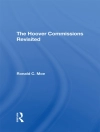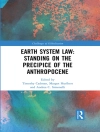Although “public opinion” has always existed, it becomes an acknowledged political subject in both the Oxford English Dictionary (1864) and the Barsetshire Chronicle and Parliamentary Novels of Anthony Trollope contemporaneously with 1) the penetration of the press into local issues and 2) the entire question of which “publics” were to be represented. Public opinion hence is a composite of parliamentary law-making as well as a kind of appellate division for society’s social (and judicial judgments), providing an alternative narrative. It differs from gossip in the nineteenth-century novel insofar as it contains no instruction manual (“don’t tell anyone, who told you but…”), but can be manipulated by a variety of new informational platforms to not merely impact, but constitute decision-making. Detached from any unitary authority and often anonymously narrated, public opinion, like the orphan-figure of nineteenth-century literature, is a discourse discontinuous from history, tradition, class alignments, and foundational origins to become a “law unto itself.”
Содержание
Preface: Overture to an Initial Public Offering; Chapter One The “Prosthetic Body” of Public Opinion in Barsetshire; Chapter Two Miming the Law; Chapter Three “Playing” the Opinion Market; Chapter Four The “Management” of Public Opinion in Trollope’s Bureaucracies; Chapter Five The Sugar; Index
Об авторе
Jan B. Gordon was one of a group of six foreign academics invited to professorships at National Universities in Japan when the law was changed in 1983 prohibiting non-Japanese from holding such positions. He was granted Emeritus Status in 2004 and from 2007 to 2014 was a distinguished professor at Kyoto Women’s Department of English. He was therefore initially what is known as a white (affirmative action) appointment.












